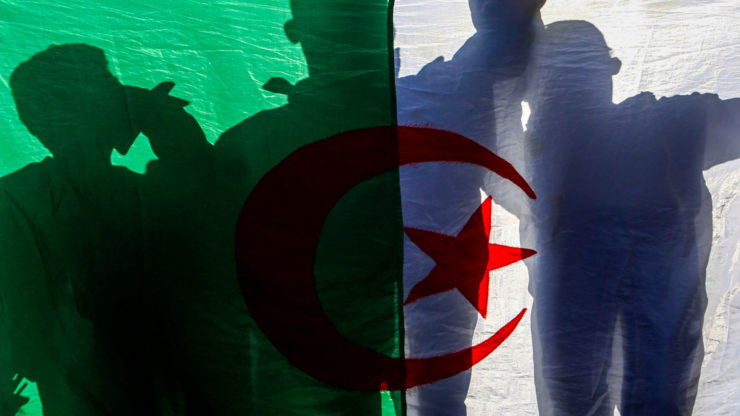
Recently, there has been an increase in Algeria’s efforts on the foreign policy track, which is associated with a significant growth in the profitability of energy supplies to the EU against the background of the rejection of Russian gas by the Europeans.
The sharp increase in financial opportunities has contributed to the development of activity in the field of regional policy of the PDRA, which is making significant efforts to combat terrorism and Islamic extremism. In this regard, the country’s government has sought to expand its interaction with neighboring countries in the region on political and economic fronts. In particular, official Algeria assists neighboring Tunisia, which is at the acute phase of sociopolitical crisis, by giving grants in the amount of 600 thousand dollars to decrease the influence of Islamists in this state.
It is also predicted that the Algerian foreign policy activity in Mali will increase, due to the desire of the PDRA to enable negotiations between the warring parties and to stop further destabilization of the situation there, for example, by using foreign military influence. Algeria notes that, given the long borders with Mali, it is advisable to restore and strengthen the joint Algerian-Malian Strategic Framework for Peace, Security and Development, established in 2015 and aimed at resolving the conflict in the north between the Tuareg rebels and the central authorities of Bamako.
Regarding the Maghreb region, Algeria attaches great importance to the processes of resisting the strengthening of the regional influence of Rabat, which, after Washington’s official recognition of its claims to Western Sahara, has intensified its actions to seek support from African states. The PDRA fears that US mediation might lead to the normalization or strengthening of Morocco’s relations with Israel in the security sphere and Tel Aviv’s supply of munitions to Rabat, which might disrupt the delicate balance of power in the region.
Against this background, Algeria is purposefully opposed to granting Israel observer status in the African Union (AU) and consequently to strengthening cooperation between the member countries of the organization and Tel Aviv, justifying its actions by the need for Israel to first resolve the Israeli-Palestinian conflict. Given the above-mentioned aspirations of the PDRA leadership on the foreign policy track, Algeria in late 2022 initiated the Arab League summit, during which the Algerians managed to promote the final document favorable to the Palestinians, as well as condemning the normalization of relations between Israel and several Arab countries.
As part of the diversification of foreign policy directions, Algeria has demonstrated its focus on intensifying cooperation with the BRICS countries, and is also considering the possibility of acquiring membership in this organization. In addition, the Algerians have taken a number of steps to develop cooperation with the PRC. In particular, the PDRA has purchased Russian arms and military equipment and expanded cooperation with Russia on some infrastructure projects.
At the same time, Algeria seeks to strengthen its relations with the West, especially against the backdrop of the conflict in Ukraine. Firstly, Algeria is cooperating with the EU in terms of natural gas supplies to Europe (11% of all European needs). It is also expected to increase hydrocarbon supplies after the completion of the Nigeria-Algeria gas pipeline project through Niger by about 100 billion cubic meters per year.
In that connection, and taking into account the significant role of the PDRA in providing security in North Africa, the Western states are not seeking to impose sanctions on the Algerians, who are actively cooperating with Russia, which is in fact providing the PDRA with 80% of its weapons and military equipment.
It seems that the above circumstances will contribute to the preservation of strategic planned Russian-Algerian cooperation in all areas of the economy, despite the presence of a trend to intensify the interaction of the PDRA with the West.
At the same time, Algeria should take into account the policy of neocolonialism towards African states followed by the West, which only pursues its own interests of siphoning off resources from the African continent. In its customary manner of “divide and conquer,” the Collective West is trying to discredit Russia’s foreign policy in the eyes of Africans in order to prevent a mutually beneficial rapprochement between Russia and African states on an equal footing, using for this purpose, among others, the Ukrainian crisis.
To counter this phenomenon, the PDRA would be well advised to focus on pursuing an Africa-centric policy and developing its own unique path as one of the regional leaders with a serious impact on the situation in Africa. This would also be facilitated by an independent and balanced position of the Algerian authorities on a number of international issues on peace and security, protection of cultural heritage, education, top level sports, etc.
Madi Khalis Maalouf, a political observer, exclusively for the online journal “New Eastern Outlook.”
